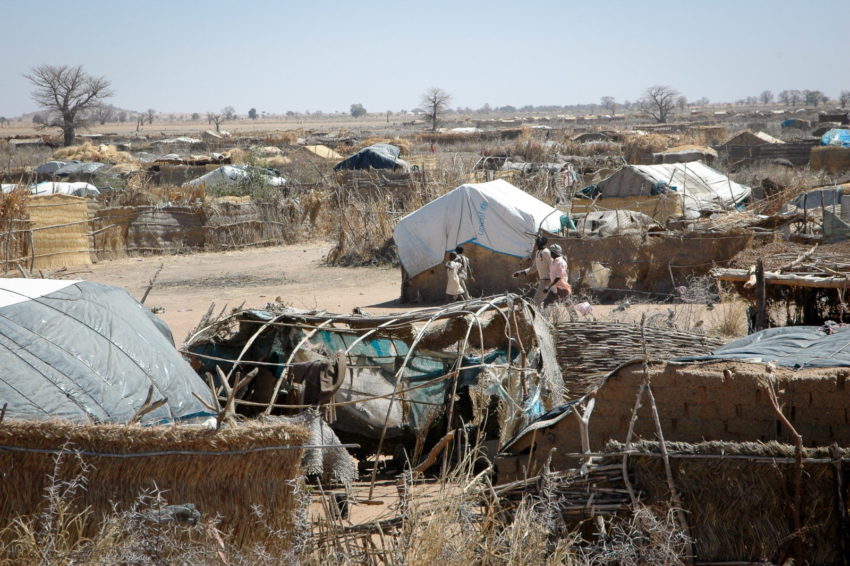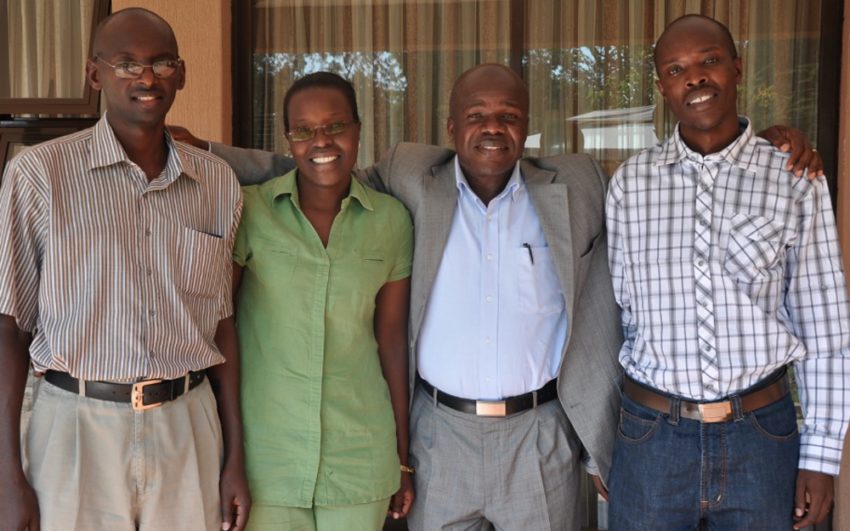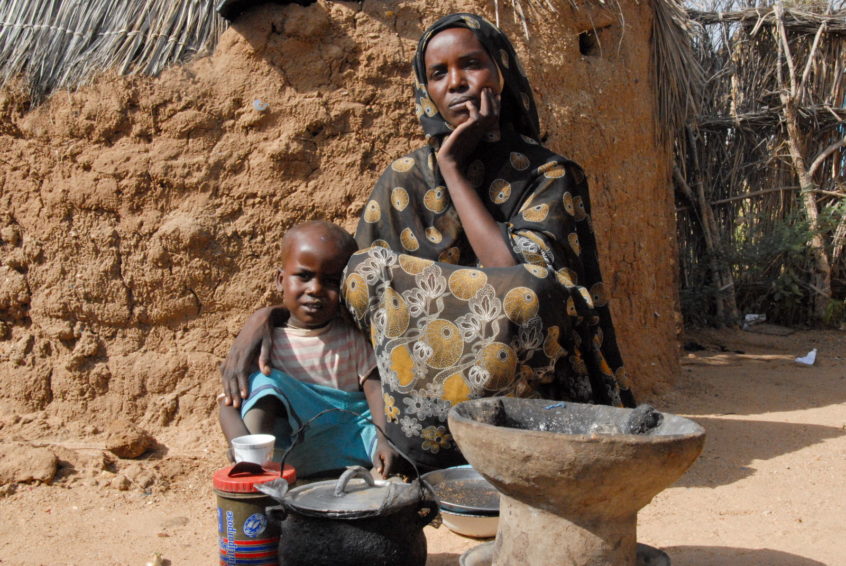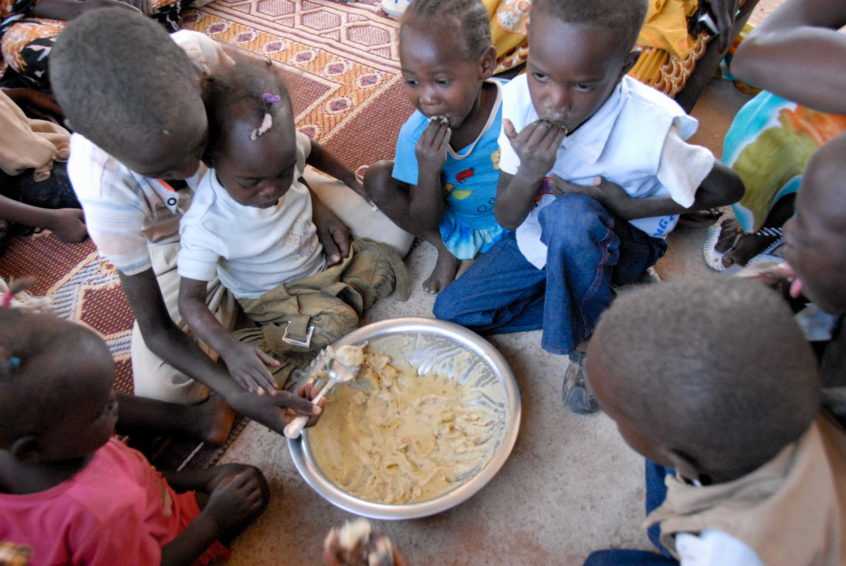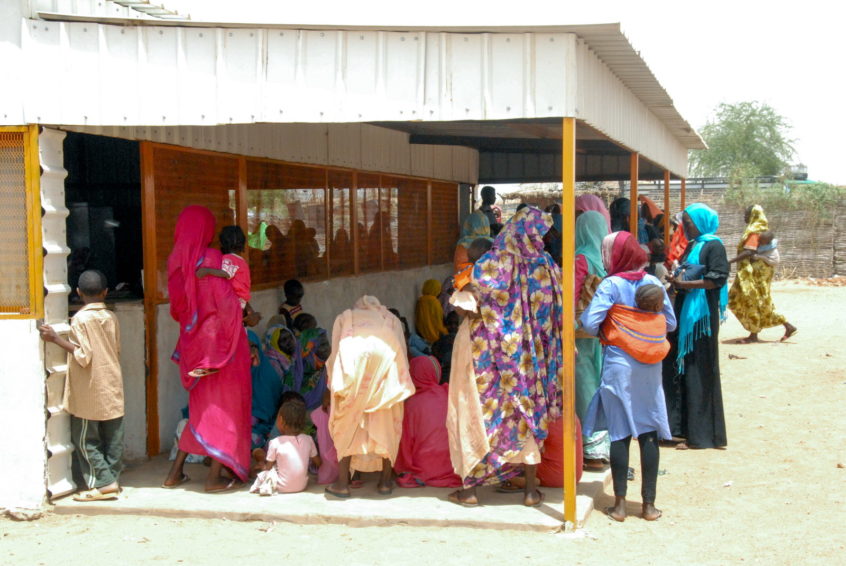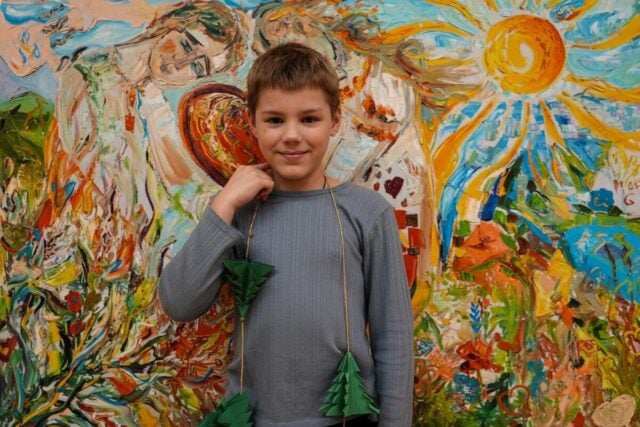Each year, aid workers are killed, injured, or kidnapped as they work to bring relief in the world’s most fragile places. Conflict zones dominate the top 10 dangerous countries for humanitarian work. During 2016, 88 humanitarian aid workers were killed during 150 attacks in 20 countries. Throughout its history, World Vision has suffered its share of attacks and losses, including an attack in 2013 in Sudan in which two national aid workers died.
Aid workers killed in attack on World Vision compound
A July 4, 2013, attack at World Vision’s Nyala compound in South Darfur, Sudan, came without warning. Gunfire broke out between two armed groups, and office staff were caught in the crossfire. A rocket-propelled grenade exploded inside the building, instantly killing 33-year-old Ali Ibrahim, a World Vision staff member. Another co-worker, Sabil Mansour, 49, died two days later from injuries sustained in the blast. Three others were also hurt in the explosion, and the compound was looted.
It was the worst single incident of violence against World Vision employees since 2010, when six staff members were killed in an attack in Pakistan. Less than 10 days after this latest attack in South Darfur, on July 13, seven U.N. peacekeepers were killed and 17 wounded in an attack north of Nyala.
“Our prayers are with the families of these courageous staff who gave of themselves every day in humble service so that others might live. In the end they gave the ultimate gift — their very lives,” says Rich Stearns, president of World Vision U.S. “Such sacrifice is an inspiration for all God’s people, and certainly for the World Vision family as we continue to serve children and families in some of the world’s most difficult and dangerous places.”
Staff say they had enjoyed relative security in Nyala compared to regular flare-ups elsewhere in the long-conflicted Darfur region. Earlier in the year, World Vision staff had been robbed twice at gunpoint near Manawashe, north of Nyala, South Darfur’s capital.
“Staff in Darfur generally face daily realities of an environment which is full of violence, tribal tensions, fighting, armed robbery, and burglary at homes,” says Nhamo Ndebele, World Vision’s operations manager in South Darfur.
World Vision’s work in Darfur at the time benefitted 1.5 million people with support for education, health and nutrition, agriculture, child protection, and women’s development. We also worked in Khartoum and Blue Nile states.
World Vision suspends aid distributions in South Darfur
After the attack, World Vision suspended its activities throughout South Darfur — the southern part of the country that borders South Sudan, which was newly independent at the time — to conduct a thorough security .
“There are about a million people World Vision is unable to serve,” says Simon Nyabwengi, World Vision’s national director for Sudan. “The longer armed groups continue fighting, the longer we are prevented from delivering vitally important services, such as food aid, health facilities, water and sanitation interventions, and Child-Friendly Spaces.
World Vision is the World Food Programme’s main partner in food distribution. Because World Vision’s distribution of food aid was suspended, more than 300,000 internally displaced persons (IDPs) in six South Darfur camps faced food shortages, Simon says.
Simon and WFP officials consulted on the resumption of feeding programs in IDP camps.
“If the distribution activities do not resume as soon as possible, women and children are likely to suffer due to limited availability and access to food,” says Geoffrey Kimaiyo, World Vision’s food assistance manager. He says most businesses would soon close for the month of Ramadan, which limited many activities like small trading and casual labor.
“We are acutely aware of the suffering that children and families dependent on our emergency and early recovery programs are facing and will want to lift the suspensions on programs as soon as possible. It will also be an honor to our fallen colleagues, Ali and Sabil, if we continue with the work that they paid the ultimate sacrifice for,” says Simon.
At the time of the attack, there were about 1.4 million IDPs in 100 camps in Darfur who depended on humanitarian assistance, according to the U.N. Office for Coordination of Humanitarian Affairs. Approximately 400,000 people were displaced in the first five months of 2013 because of inter-tribal fighting and increased conflict between armed groups and the government, the Internal Displacement Monitoring Center reports.
World Vision resumes limited operations
With stricter security procedures in place, World Vision staff in South Darfur resumed health services and distribution of water and food in four camps for IDPs in South Darfur, Sudan, 10 days after the deadly attack.
“Our staff must remain vigilant where security is concerned as they offer life-saving services to the IDPs,” says Simon Nyabwengi, World Vision’s national director in Sudan.
Humanitarian groups were warned to expect an increase in criminal activities and attacks against humanitarian workers, he says. The U.N. Department of Safety and Security advised international staff of aid agencies to relocate to the U.N. compound or stay indoors. World Vision staff were temporarily relocated to the U.N. compound and not allowed to visit field programs until full operations resumed.
World Vision’s work in Sudan
World Vision began working in Sudan during the 1980s, from 1983 to 1988, then resumed operations in Sudan in June 2004 in response to the Darfur crisis. Later on, field offices opened in Khartoum and Blue Nile States.
“The tragic and senseless deaths of our two employees … underscore not only the danger of our work, but also our commitment to God’s calling to serve the poor,” says Simon. By rededicating ourselves to the people of South Darfur, we also are honoring the lives and legacies of Ali Ibrahim and Sabil Mansour.”
Today, World Vision Sudan runs relief, recovery, and development programs that benefit more than 1.5 million people with food aid, water and sanitation, health and nutrition, childcare, gender development education, as well as agriculture and natural resources.
Remembering Sabil Mansour
Sabil Mansour was a man, who was “always wearing that kind of smile which easily defuses any tension in this contentious business,” says Nhamo.
He had nine children and was married to Eyeman. The family’s breadwinner, he was helping two of his daughters pay for college and his other children attend elementary and high school.
Since joining World Vision in 2007, Sabil was in charge of vehicle maintenance and coordinating transportation. It was tough work, handling logistics for all travel to field sites and contracts with local drivers in an unpredictable setting, but “he did his job professionally,” says Nhamo.
A humble and sincere man, Sabil spoke calmly, but with strength and passion, when emphasizing a point, colleagues say. Sabil came from the family of a tribal chief but didn’t brag about it. In fact, he called Salih Helelo, his co-worker, sharttai, which means “chief.”
Sabil’s chiefly heritage came out during office gatherings, as he never passed up an opportunity to give a speech.
“One would not miss the sincerity in his face,” Nhamo says.
Remembering Ali Ibrahim
Like Sabil, Ali could lighten the mood with his wit and joyful smile. Team members affectionately called him “Kurumji,” after his home village.
“He was always joking and making people laugh,” says Geoffrey Kimaiyo, a World Vision food distribution manager in South Darfur.
Ali worked with World Vision as a food distributor for five years in the camps for internally displaced people. He had recently become a father and faithfully traveled home each weekend to be with his wife, Hawa, and 3-month-old child.
The morning of the attack, employees had decided to help a fellow staff member pay for medical treatment in Khartoum. Ali was among the first to pitch in.
His commitment to his work and the people he served ran so deep that he once distributed food on his own, while on leave, when other World Vision staff were denied access to the area near his home.
“Despite the challenges they would go through,” says Geoffrey, “they were out there as a team to help serve the needy people of South Darfur.”
Contributors: Michael Arunga, Brenda Asiko, Chris Huber, and Kathryn Reid, World Vision staff.
